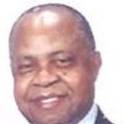
Azuonye sets out, through the representation of kings in Igbo tales, a picture on the one hand of legitimate authority and on the other of the abuse of power, two sides of the same coin. His discussion is directed along two lines. First, and most directly, he examines the nature of the picture of power relations painted in the tales insofar as it presents a 'democratic ideal'. Second, Azuonye sees the painting of that picture as part of the propagation of competing visions, 'the power of oral literature to sustain, through the selective process of mythic filtering, a particular type of social ideology against the claims of rival or contending ideologies'. In terms of the image of legitimate authority the tales establish a composite set of criteria--each tale fills in another criterion wherewith to judge an individual--that together constitute a yardstick of approved or disapproved attributes (Graham Furniss and Elizabeth Gunner, Introduction, p. 8).
Available at: http://works.bepress.com/chukwuma_azuonye/60/
